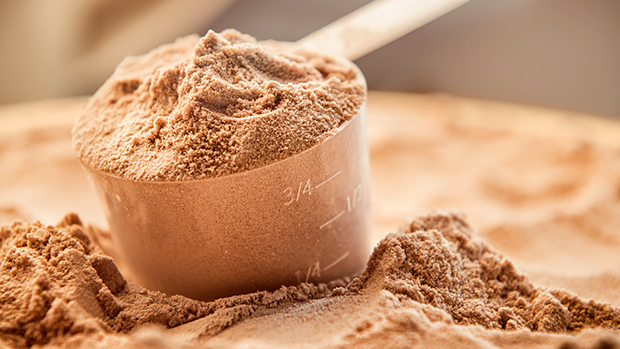Traditional muscle science – the kind studied by pasty-faced guys in lab coats – has long insisted that 20 to 25 grams of post-workout protein is the amount you need to cause maximum stimulation of muscle protein synthesis (basically muscle growth). Their assumption was that it was pretty much a waste of good protein to exceed that amount.
New research seems to shove that assertion in their face. A paper printed in the August 4th edition of the journal, Physiological Reports, describes a study where weight-trained males were given either 20 or 40 grams of whey protein after a bout of whole-body resistance exercise.
The group that ingested 40 grams had a significantly higher muscle protein synthesis than the group that ingested 20 grams. Furthermore, the effect was equally significant, regardless of the amount of lean body mass (LBM) in the test subjects. (There were two groups of test subjects, one with "lower" LBM and one with "higher" LBM.)

One thing that remains unanswered, though, is what effect ingesting amounts larger than 40 grams has on weight-trained subjects. Based on the observations of many in the strength game, the amount of protein you can take before hitting the ceiling of muscle protein synthesis seems to be much higher than 40 grams and has a lot to do with the leucine content of the protein source.
Take-home message? You're not wasting protein consuming 40 grams after training. The old "20 grams" recommendation can safely be doubled. And you can probably go higher than that.
Reference
- Macnaughton, Wardle, et al. "The response of muscle protein synthesis following whole-body resistance exercise is greater following 40 g than 20 g of ingested whey protein." Physiol Rep, 2016 Aug;4(15).





